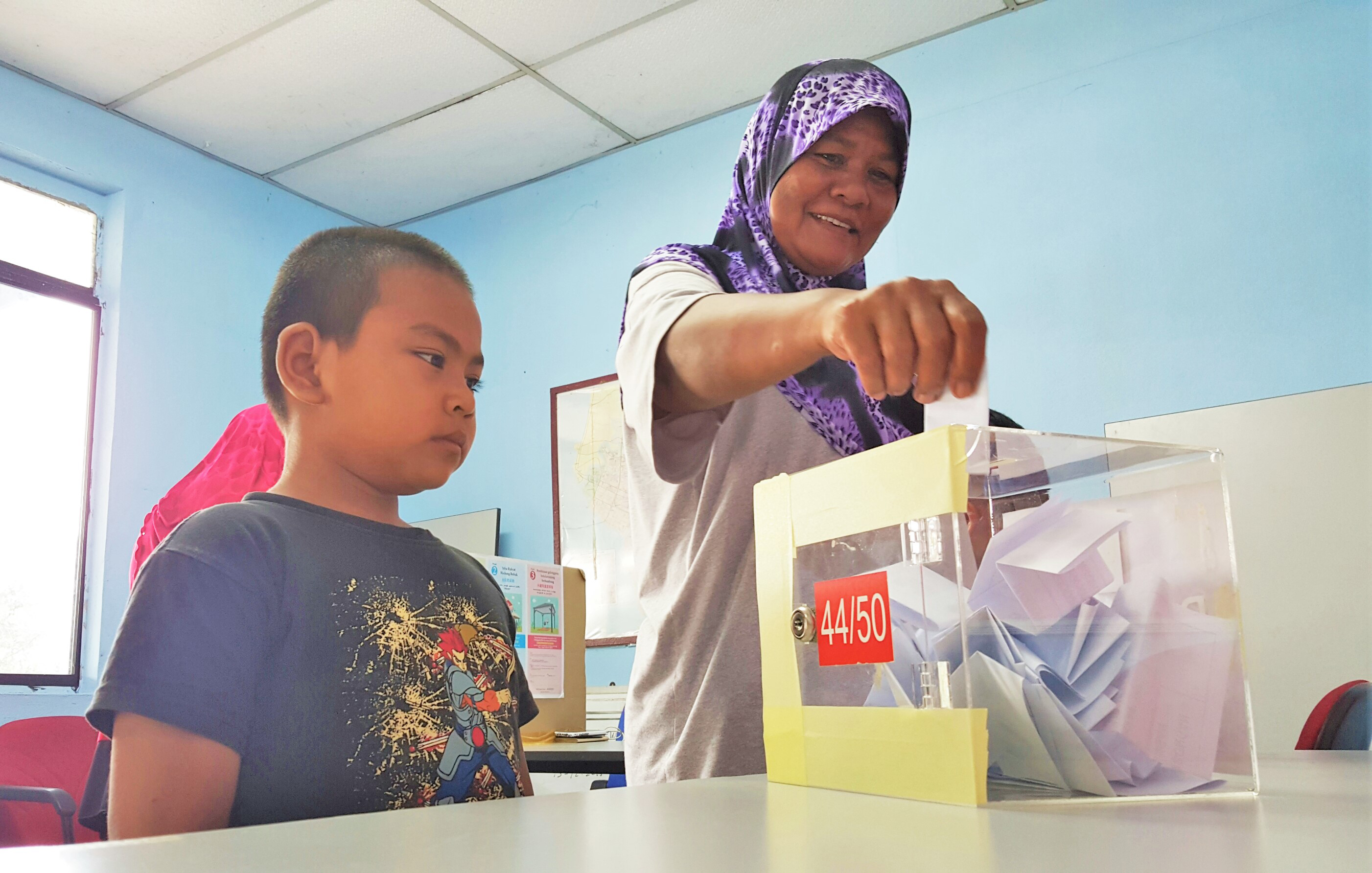A project that sees voters decide how government money is spent on development offers a new hope for Malaysia’s democracy, writes Joshua Woo Sze Zeng.
In an interview in 2007, the then US presidential candidate Barack Obama named Reinhold Niebuhr as one of his favorite philosophers. He remarked that Niebuhr has taught him moderation between “na├пve idealism” and “bitter realism” in life and politics.
This moderate view is seen in Niebuhr’s evaluation of the pros and cons of democracy, after having witnessed how global affairs led to the two world wars.
His view on democracy is captured in the famous line from his book, The Children of Light and the Children of Darkness: “Man’s capacity for justice makes democracy possible; but man’s inclination to injustice makes democracy necessary.”
Many activists, civil society members, and politicians sympathise with the sentiment, especially the latter part on democracy as the bastion against the evil of tyranny. This focus underlines the preventive nature of constitutional democracy. It is an expression of democratic passivism.
Too often the former part of the quote is ignored, that democracy is also a political framework that is just. By allowing citizens to vote, democracy brokered political power to everyone so that all can get involved in governance. This expresses democratic activism.
An effective democracy requires both passivism and activism. Yet, the question remains, can such a political framework work in a real society?
A local democratic effort in Machang Bubok, Penang, Malaysia strives to encapsulate both democratic passivism and activism. The exercise involves the constituency of 32,000 voters deciding how to spend the 100,000 ringgit allocated to them.
Jointly initiated and funded by the Member of Parliament for Bukit Mertajam YB Steven Sim Chee Keong and State Assemblyman for Machang Bubok YB Lee Khai Loon, the year-long project is titled ‘Duit Kita, Hak Kita’ (‘Our Money, Our Say’).
It employs the ‘Gender Responsive Participatory Budgeting’ (GRPB) approach, a tool that studies, discovers, and upholds the interests of marginalised groups by spending public funds in ways that respond more accurately to their needs. The Penang Women’s Development Corporation leads this aspect of the project.
The team together with the office of the two YBs have mobilised more than 200 community leaders and volunteers to brainstorm, propose, and vote for the developmental project that they think best serves the constituency. The preparation took almost a year before the vote, with three polling days, from 25 to 27 March 2016.
On the YBs’ part, this is a conscious effort to refrain from deciding on the budget on behalf of their 32,000 constituents. The YBs themselves brokered their own power over the 100,000 ringgit among the locals. This democratic passivism is unprecedented in Malaysia’s history of representative democracy.
On the constituents’ part, they are involved in the whole process, from the project’s inception to the actual voting on what development to be implemented. Since the money belongs to the people, the people have the right to decide how to spend it, and participate actively in the decision-making process. Thus the project’s title ’Duit Kita, Hak Kita’, reflecting democratic activism.
The mechanism that makes democracy work is considerable. Brokering power to the people is hard work.
The project serves as the ground where “man’s capacity for justice” meets “man’s inclination to injustice”, encapsulating Niebuhr’s two important characters of democracy.
The more fundamental democratic contribution ’Duit Kita, Hak Kita’ provides is its pervasive political education that distills democracy at the local level, not merely as a campaign slogan or academic discussion.
It is an arrangement of massive effort, mobilisation, visitation, and campaigning at crowded public spaces such as morning markets, pasar malam (night markets), religious buildings, coffee shops, and popular exercise sites.
Through this project, the people receive not only information about democracy, they also constitute the very process that shapes democratic culture at the local level.
Democracy is not only voting our representatives every five years, but actively involved in the development of the society we live in.
Thus, ‘Duit Kita, Hak Kita’ is an embodied communal experience of democracy. It instills democratic consciousness among the people, reflecting the education approach espoused by philosopher James K A Smith:
Education is not primarily a heady project concerned with providing information; rather, education is most fundamentally a matter of formation, a task of shaping and creating a certain kind of people… An education, then, is a constellation of practices, rituals, and routines that inculcates a particular vision of the good life by inscribing or infusing that vision into the heart… by means of material, embodied practices.
In other words, the residents at Machang Bubok, through the project, are being formed into a democratic people.
Ultimately, democracy is about all of us deliberating among ourselves to decide how best to govern ourselves.
And for this decision-making process to be effective for the whole nation, it must begin with a local constituency.
Joshua Woo Sze Zeng is Special Officer to the Member of Parliament for Bukit Mertajam in Malaysia.
 Facebook
Facebook  Twitter
Twitter  Soundcloud
Soundcloud  Youtube
Youtube  Rss
Rss 
